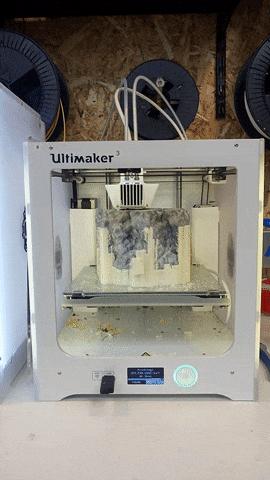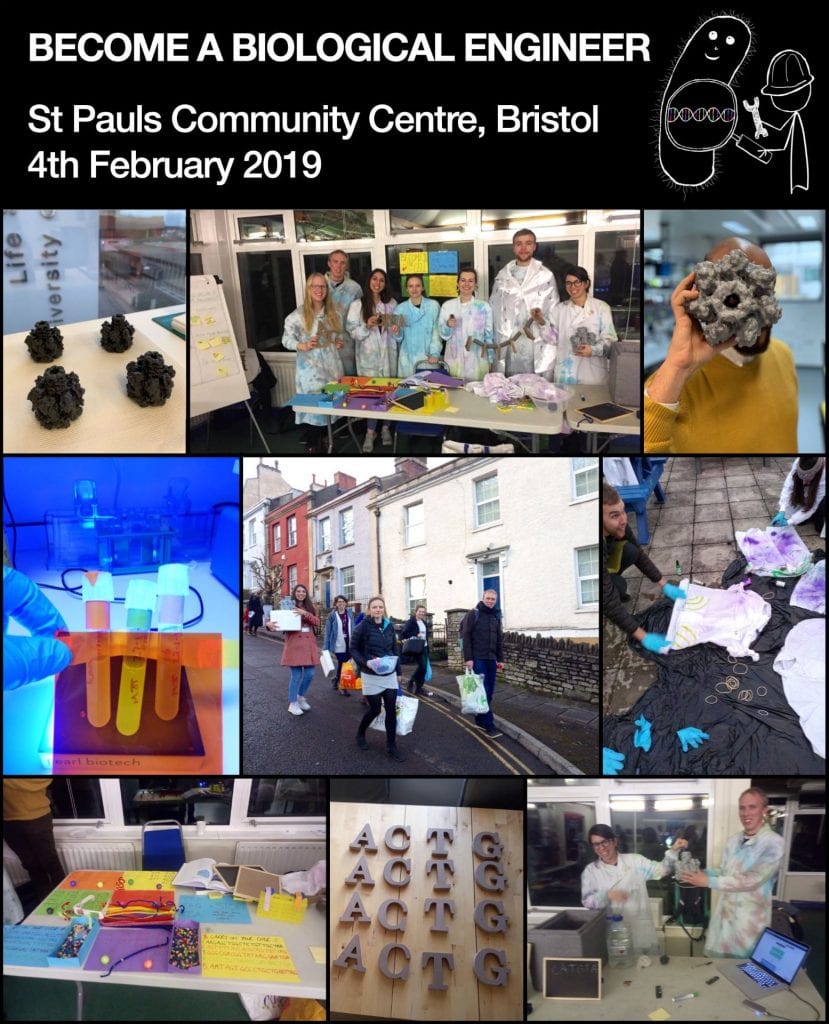“Become a Biological Engineer” event at St Pauls Community Centre
Emily Phelps

On the 4th of February, the “Become a Biological Engineer” team attended their first event in St Pauls Community Centre. This saw more than 30 children aged 9 and upwards attend from schools around the local area.
At the event, children began by becoming a DNA sequencer – “feeling” the individual “letters” of a DNA molecule to decipher the message. The activity mimics the way bioengineers use a method called nanopore sequencing to read both native and artificial DNA in living cells.
With their new sequence in tow, the children next learnt about how a DNA sequence is converted into a protein – the molecular machines of a cell. Using beads and a pipe cleaner, the children translated their DNA sequence into the individual amino acids that made up their protein and discussed how bioengineers program cells to synthesise their own engineered proteins to give them new capabilities.
Having gained an understanding of the basic cellular processes used by bioengineers, the children were finally treated to a live sequencing demo with a tiny hand-sized MinION nanopore sequencer from Oxford Nanopore Technologies. They were also allowed to play with a 3D printed model of the device, which used changes in the flow of water through the model to demonstrate how each nanopore senses DNA.
Before leaving, the children were asked about whether they thought they could make a good bioengineer and if they could sequence the DNA of any organism what would it be? The latter question provided some interesting answers including a pet fox and a ginger beer plant!
Overall the event was a great success with lots of interest from the children and teachers. The overarching aim of the project is to help the public better understand the approaches and benefits of bioengineering and for scientists to learn what the public feels is an appropriate use of this technology. It also hopes to inspire those from disadvantaged backgrounds and break down barriers to learning about science. Later in the year the team will be attending both the City Nature Challenge and the Festival of Nature, as well as visiting schools from around Bristol as part of an exciting new citizen science project where roles will be reversed and the children will become the scientists!
Become a Biological Engineer is generously funded by a Royal Society Public Engagement Grant and supported by a team of volunteers from Schools across Bristol BioDesign Institute: Biological Sciences (Matthew Tarnowski, Gilda Varliero, Veronica Greco, Thomas Gorochowski, Katherine Chapman, Emily Phelps), Biochemistry (Rosie Maddock), Engineering (Vittorio Bartoli). If you are interested in helping at future events or just finding out more, contact matt.tarnowski@bristol.ac.uk.


